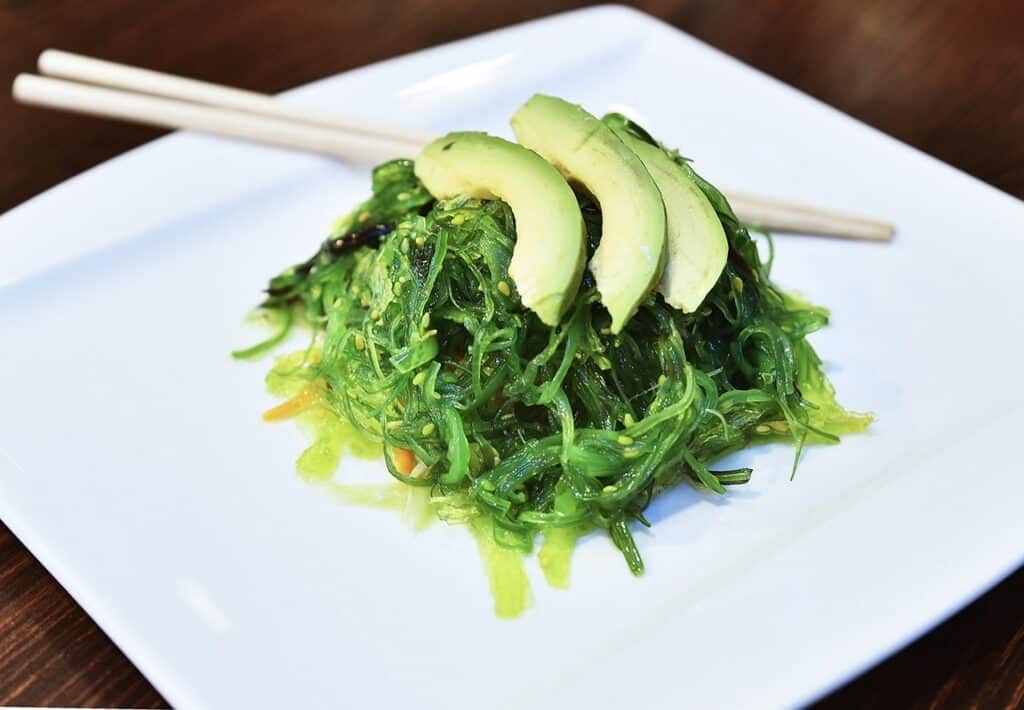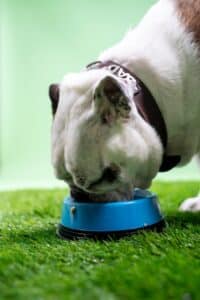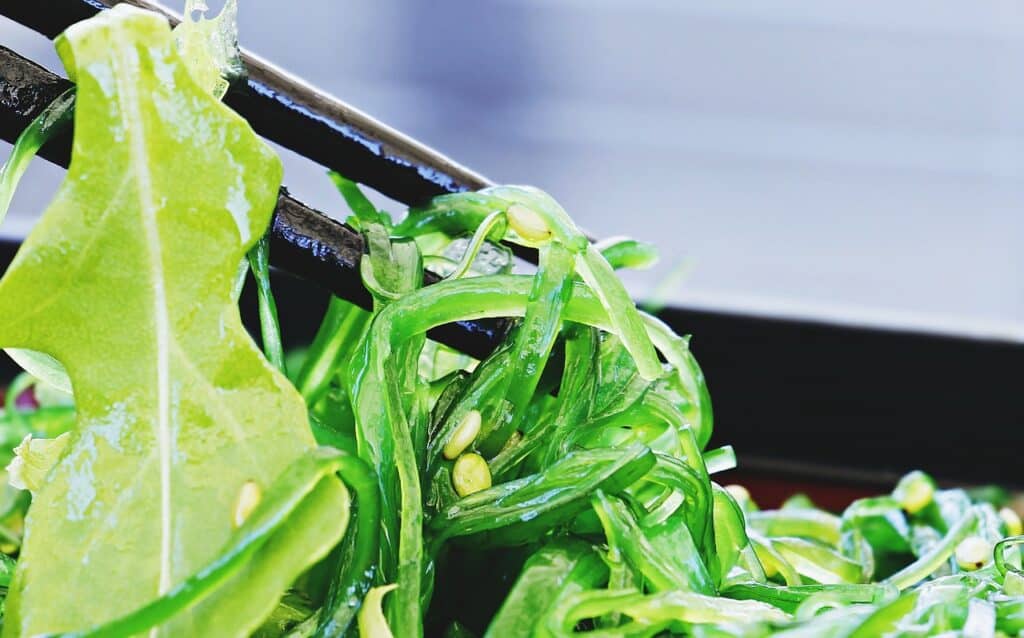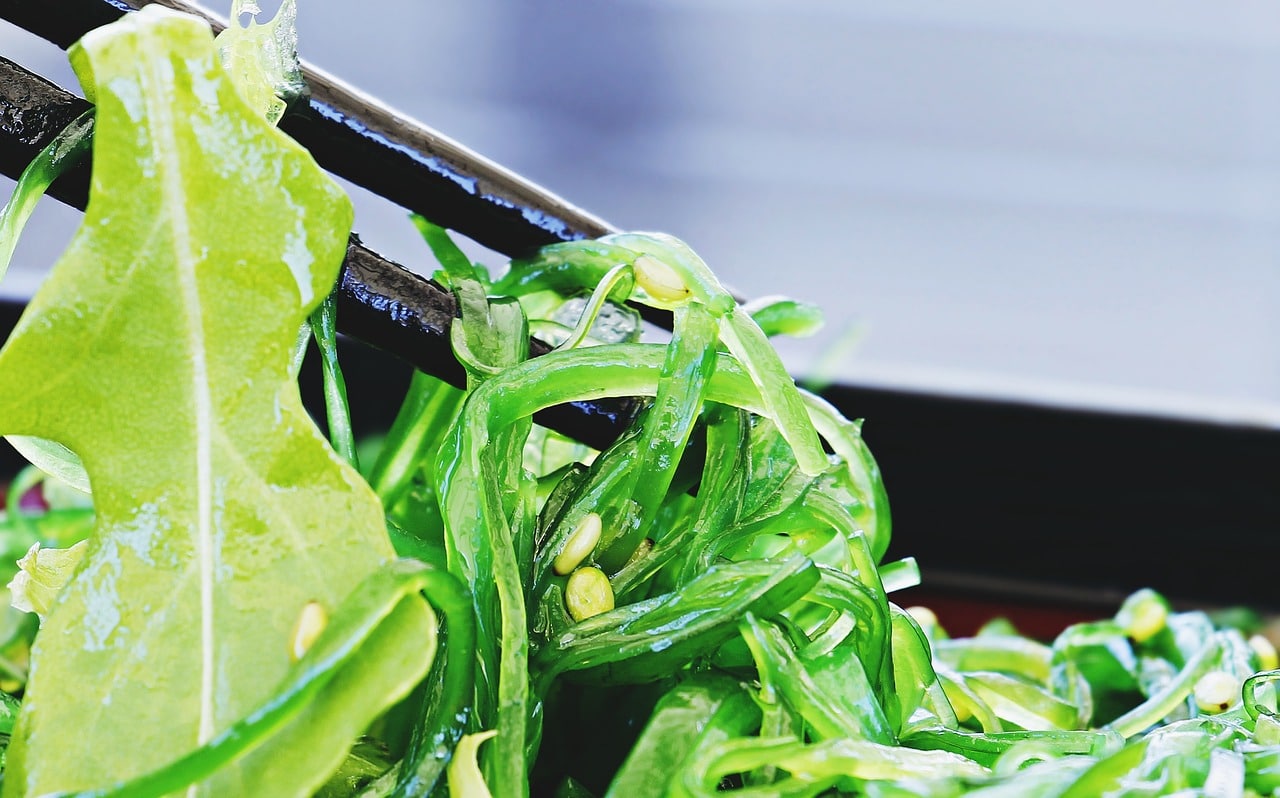Did you know veggies aren’t just land-based? Some fantastic ones grow in the ocean, like seaweed! Humans have been crazy about its superfood goodness, tossing it in salads and sushi.
It’s not just tasty for us; it’s healthy too. But: Can dogs eat seaweed? Before sharing seaweed with your dog, there are a few important things to know. Let’s dive into the details!
Table of Contents

Health benefits of seaweed in dogs
Now that you know how to add seaweed to your dog’s diet, let’s talk about why it’s so good for them. Packed with awesome nutrients, seaweed can work wonders for your dog’s skin, joints, coat, immune system, and more. Check out the key nutrients it brings:
- Omega-3 Fatty Acids: These are like superstars for preventing heart disease and even lowering blood pressure.
- Iron: Essential for growth, it helps create red blood cells that carry oxygen – super important!
- Iodine: Seaweed is a rare source of iodine, crucial for thyroid hormones that control metabolism and development.
- Magnesium: This nutrient is a multitasker, helping with nerve and muscle functions, blood sugar, pressure, and making DNA and bones.
- Vitamin B12: A brain booster! It supports cognitive functions, keeps the nervous system healthy, and helps release energy from food.
- Seaweed might just be the secret ingredient for your dog’s well-being!
Can dogs eat seaweed?
Well, it depends on the type and how much they have. Generally, safe edible seaweeds like nori and wakame are okay for dogs in small amounts. These can bring some extra nutrients to their diet.
But, we need to be cautious. Some seaweeds might have toxins or bacteria harmful to pets. Too much of certain kinds can upset your dog’s tummy.

Before adding seaweed to your dog’s meals, it’s best to check with your vet. They can guide you on the safe types and the right amount for your furry friend.
Is seaweed safe for dogs?
Short answer: Yes, dogs can eat seaweed, but not just any kind. Avoid wild algae from beaches, as it can be risky. Dogs might not naturally like it, but if introduced as a supplement, they might develop a taste. Here’s what to know about wild algae.
Which seaweed is toxic to dogs?
Seaweed is generally safe for dogs unless they get too much. Using algae powder is okay if you follow the instructions. If your pup gets too much, watch for diarrhea – it usually goes away when you reduce the dose. Rarely, there might be side effects or allergies, and if you see any, consult your vet.
Be careful around natural waters, as some toxic algae can harm dogs, especially the blue-green kind. Sadly, it’s hard to tell harmless from harmful without testing. So, keep your pet away from green, foamy waters. If your dog seems sick after a swim, rush to the vet!

What to do if your dog eats seaweed?
Some algae are okay for dogs in small amounts, but what if your dog snacks on a whole bag of nori or munches on beach seaweed? In those cases, don’t wait – call your vet right away.
Beach seaweed can make your dog swallow too much saltwater, causing tummy trouble. Also, seaweed can pick up harmful stuff, so get your dog checked by a vet.
Even safe edible seaweed can upset your dog’s tummy if eaten in big amounts. Watch those portions!
How to feed your dog Seaweed
Feeding dogs seaweed can be a bit tricky. For a safe snack, try giving them dried or finely chopped seaweed mixed with their food.
Always check the ingredient list – avoid seaweed loaded with unhealthy stuff like salts and sugars.
Keep fresh water close by. It helps their food go down smoothly and move through their tummy without any hiccups!

Types of Seaweed to Feed Your Dogs
Wakame
A seaweed with a slightly sweet taste, often found dried. Rehydrate it before giving it to your dog.
Nori
Red seaweed used in Japanese cuisine is found as dried leaves. Commonly used for sushi rolls or rice balls. Watch out for traces of arsenic and cadmium; avoid letting your dog ingest large amounts.
Kelp
A large brown seaweed with over 30 varieties is used in Chinese, Korean, and Japanese cuisine. Served dried, raw, or cooked. Used to flavor broths, as a side dish, or in snacks.
Kombu
Commonly used edible seaweed, usually purchased dried or pickled. Avoid the vinegar for your pup, but they can try the broth made with kombu.
Sea Grapes
Soft, juicy seaweed, a type of green algae native to the Indo-Pacific region. Looks like small grapes and is eaten raw. Loved by people in the Philippines, Malaysia, Japan, and Vietnam.
Remember to introduce these seaweeds to your dog in moderation, and be cautious about any potential contaminants.


